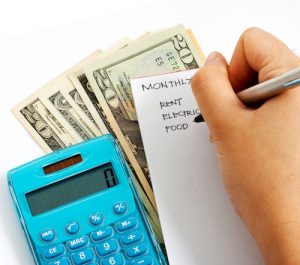Seventy-Eight Percent of Americans Live Paycheck to Paycheck
 Struggling to make ends meet month after month? You’re not alone in this.
Struggling to make ends meet month after month? You’re not alone in this.
A study conducted by CareerBuilder discovered roughly 78 percent of Americans live paycheck to paycheck, up 3 percent from 2016, according to USA Today.
Even the number of Americans living in debt has risen. Seventy-one percent of Americans are currently living in debt, up from 68 percent in 2016.
The study also discovered that 58 percent of Americans struggling with credit card debt are “in over their heads,” and many find it difficult to save $100 or more a month, according to USA Today.
And it’s not just those in the middle class or below who are having a hard time paying off debt while covering the cost of living, roughy 1-in-10 who earn $100,000 or more a year are also living paycheck to paycheck.
Millennials especially fall into this category as many are now part of the working class.
Those between the ages of 23 and 35 years old report having the least amount of financial satisfaction, and the millennial generation is said to be the most financially illiterate generation.
One of the biggest mistakes millennials make is not starting a savings account and putting away money each month for a rainy day. Having at least 3 to 6 months of living costs saved is the recommended amount people should have in their savings account.
But stashing cash is not as easy of a task as many financial planners make it out to be. The cost of living has steadily increased while worker’s wages are just slightly ahead of the inflation rate, according to CBS News.
At this rate saving for retirement poses to be a real challenge, especially for millennials who need between $1 and $2 million tucked away.
Yet many Americans are spending more than they make a month on their basic living expenses. In fact, many millennials  are spending more than the recommended 30 percent of their monthly income on rent.
are spending more than the recommended 30 percent of their monthly income on rent.
One reason for this is the average cost of rent in American cities often exceeds the minimum wage most workers earn, forcing them to bite the bullet and pay sometimes more than half their income on rent.
This leaves little to no extra cash to put in a savings or retirement account, especially when so many people are living paycheck to paycheck.
















